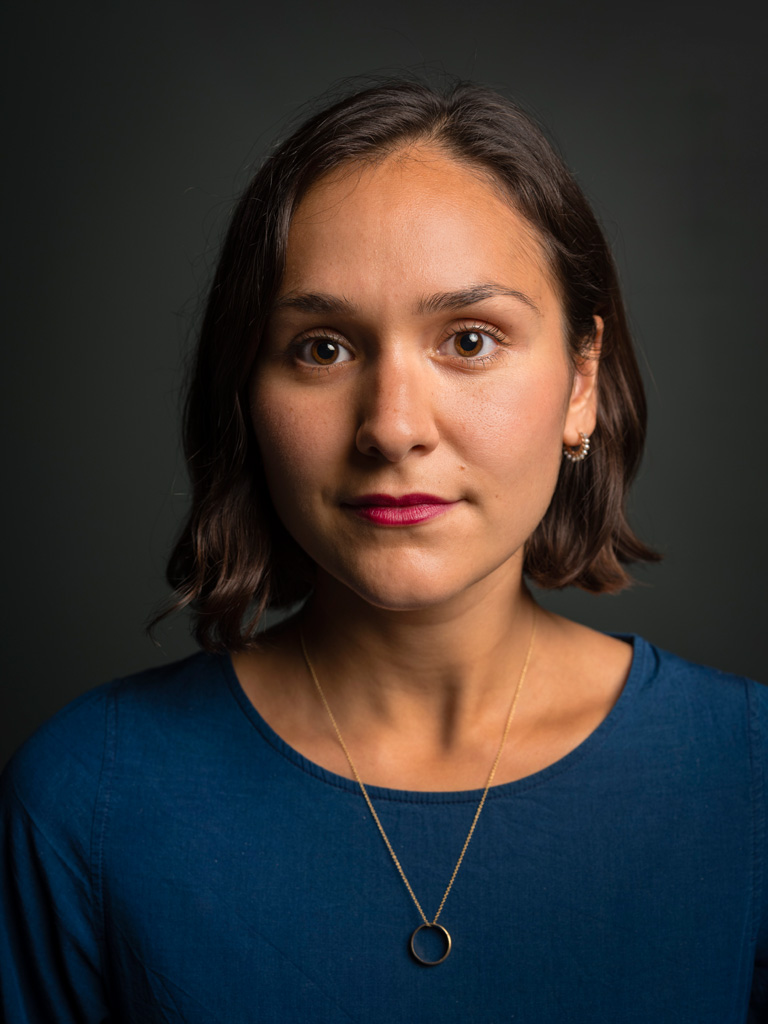
MA/MFA Selectors:
Catherine Troiano, Curator
V&A
www.vam.ac.uk
Introducing the Selectors for the MA/MFA Phase of Graduate Photography Online 2019: we talk to Curator, Catherine Troiano.
Tell us about your job? What does your core role at the V&A involve?
I am Curator of Photographs at the V&A. The V&A Photographs Section is a small, dynamic team of curators and our work revolves around various pillars of curatorial practice. We are responsible for the National Collection for the Art of Photography, a designation that has been in place since 1977. The collection numbers over 800,000 objects and comprises innumerable types of photographic objects from prints and glass-based material to a library of photographically-illustrated books and periodicals, and a technical collection of cameras and related pieces of photographic equipment. Looking after the collection involves maintaining its physical care in stores, making it intellectually and physically accessible through the Prints and Drawings Study Room and online, and growing it through new acquisitions. Besides looking after the collection, the Photographs Section is responsible for displays and exhibitions. This includes curating rotating displays drawn from the permanent collection in the Photography Centre, phase 1 of which opened in October 2018 with phase 2 scheduled to open in 2022. The Photography Centre features thematic displays, artist commissions and interactives, all of which rotate, in line with conservation requirements, at various intervals. The Section also generates touring exhibitions, for example White Heat of British Industry: Photographs by Maurice Broomfield, currently on view in Derby and curated by Martin Barnes; and headline exhibitions at the V&A, for example Tim Walker: Wonderful Things, curated by Susanna Brown, that opens here at the V&A in September. As curators, we also give teaching around the collections, do public speaking, write publications and participate in conferences.
How did you make your way into the career you're now in? Did you always want to work in a field that involved photography?
I come from an art historical background, but began to focus on photography within my studies early on. I have worked with photography in various settings; at museums, with curatorial collectives, and in the commercial world. I have always maintained a strong research focus alongside practical jobs, which is a combination that lends itself to curatorial practice. Having specialised in photography from a relatively early professional moment, and as someone who is completing a PhD about photographic practices, I consider myself embedded!
How do you decide on what makes an interesting photograph or photographic project?
There is no hard and fast rule for what makes an interesting photograph or an interesting photographic project, and 'interesting' means different things to different people. For me, strong work is often linked to rigorous approaches, either conceptually or practically; decisions should feel intentional and not arbitrary. I don't think it's necessary to reinvent the wheel, some of my favourite work riffs off things from the medium's past. But, it's important to recognise these references and know where your inspiration has come from. If you make decisions that you can justify and comfortably stand behind, there's every chance that the work is interesting from one perspective or another.
As regards the photographer's statement, what are the most important things for you to know about the work? When it comes to showing their work outside of University, have you any tips on how graduates should prepare their work and the supporting material that accompanies it?
The most important thing for me to know is why – why is the project worthwhile, why should others be interested in it, why did the photographer feel compelled by it? If the 'why' is addressed properly, it should also cover the other important thing, the 'how' – how did it come about, how was it brought to realisation, how is it different to other projects? My biggest tip for preparing work beyond a graduate programme would be to master the art of editing as early as possible. It's a key skill and good editing can be the difference between overwhelming someone and catching their attention. This also links back to ideas around intention – the inclusion of every picture in a final edit should be intentional, contributing something that the other pictures don't.
In your view, what are the kind of qualities that completing a degree course in photography should endow an individual with? Aside from specifically technical skills, what is the difference that having a demographic of emerging photography graduates makes in the world?
In my view, one of the most important qualities you can gain from a degree course in photography is the ability to think laterally and practically about your work. By this, I mean the ability to be able to translate an idea into a viable project, and assess how that project should be best represented in practical terms. Another skill to take away from a degree course is an ability to talk about your work. This can be very helpful when it comes to presenting and promoting your work in the wider art world.
What are the challenges you see facing graduates from photography degree courses as they make their way into the world at this point in time?
Reconciling your career aspirations with the practicalities of life. It's not always easy to make a living as a photographer, especially for recent graduates or early-career practitioners, and so many people maintain their personal practices alongside other professional or commercial work. This means carving time outside of your 'day job', which can be tricky for those juggling various realties and responsibilities.
What advice would you have for someone interested in working in your area of photography?
To think about how badly you want it. If the will is there, it can be the most rewarding thing in the world. But, it's a small industry, it's competitive and funding is limited, so it's worth thinking early on about how committed you are. To quote my colleague, Dr Marta Weiss: 'art is a luxury and a charity'.